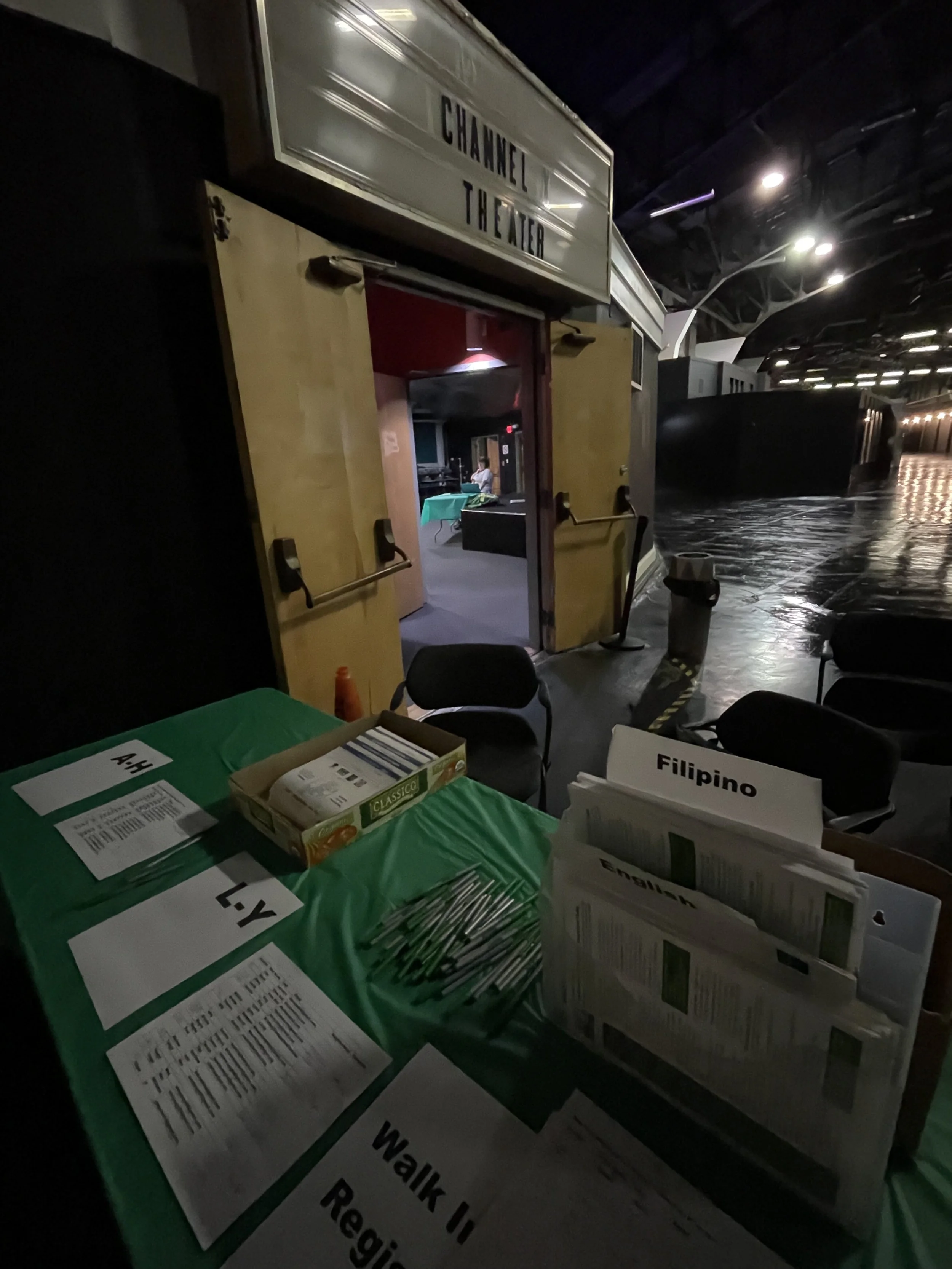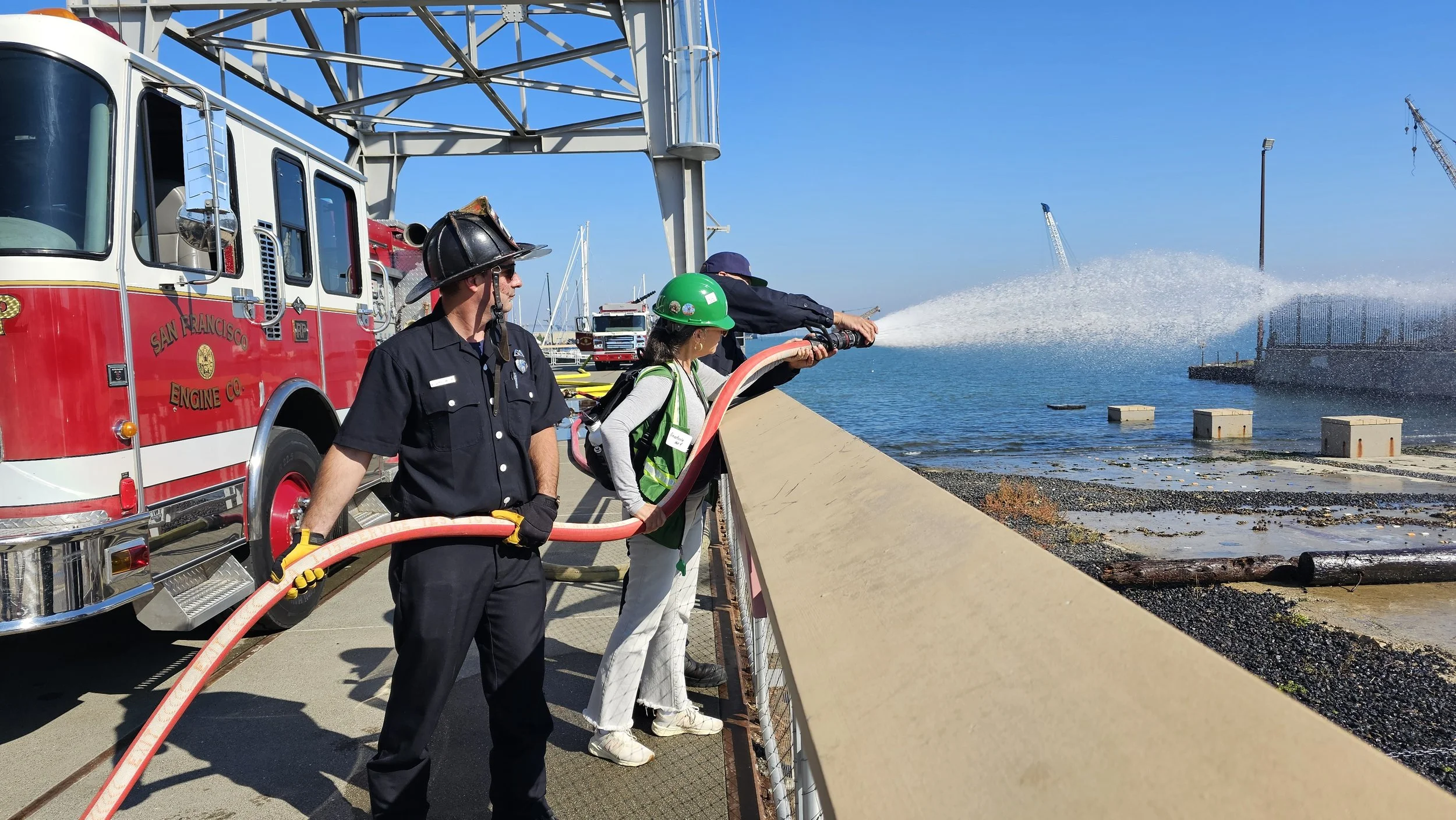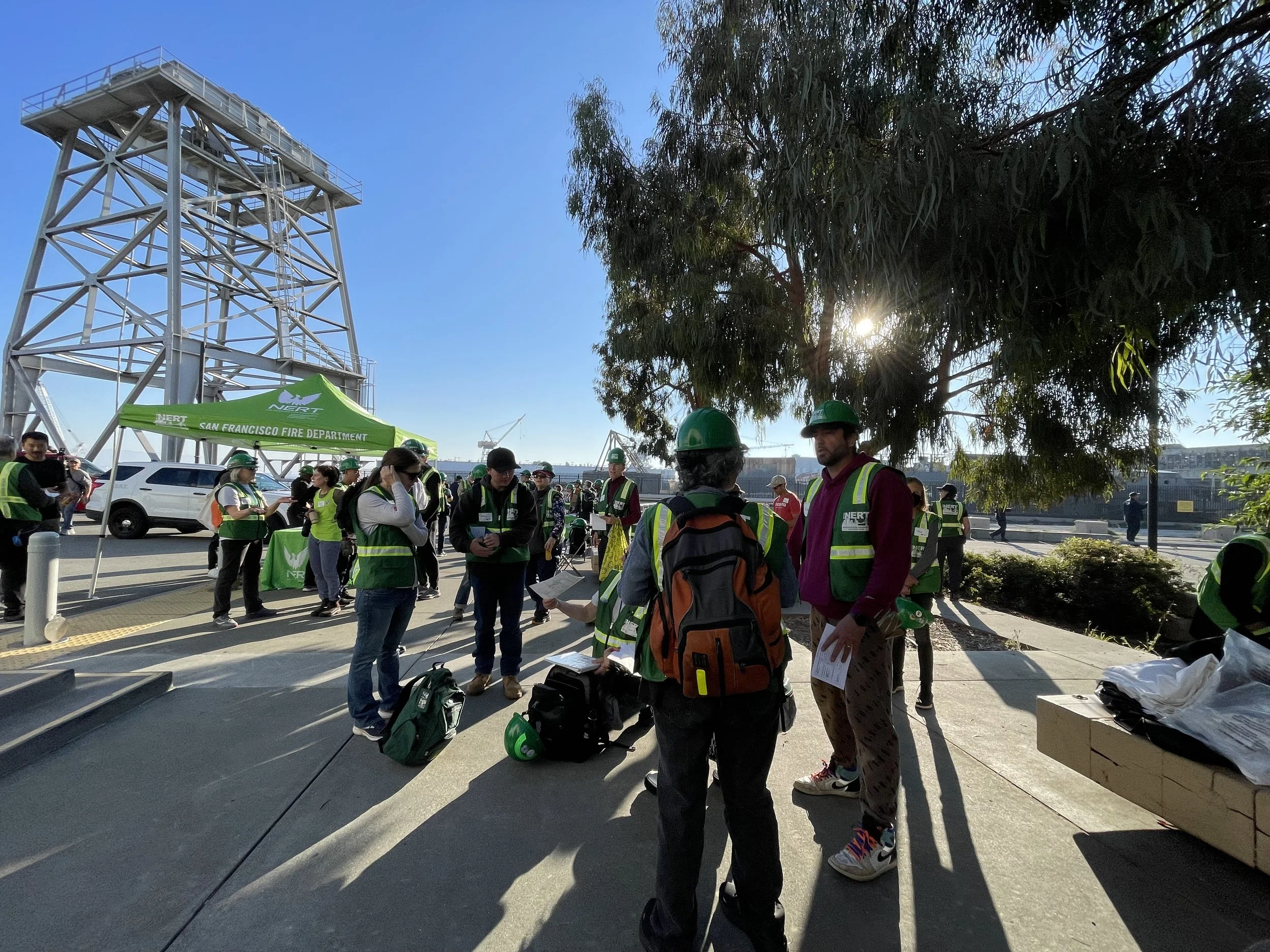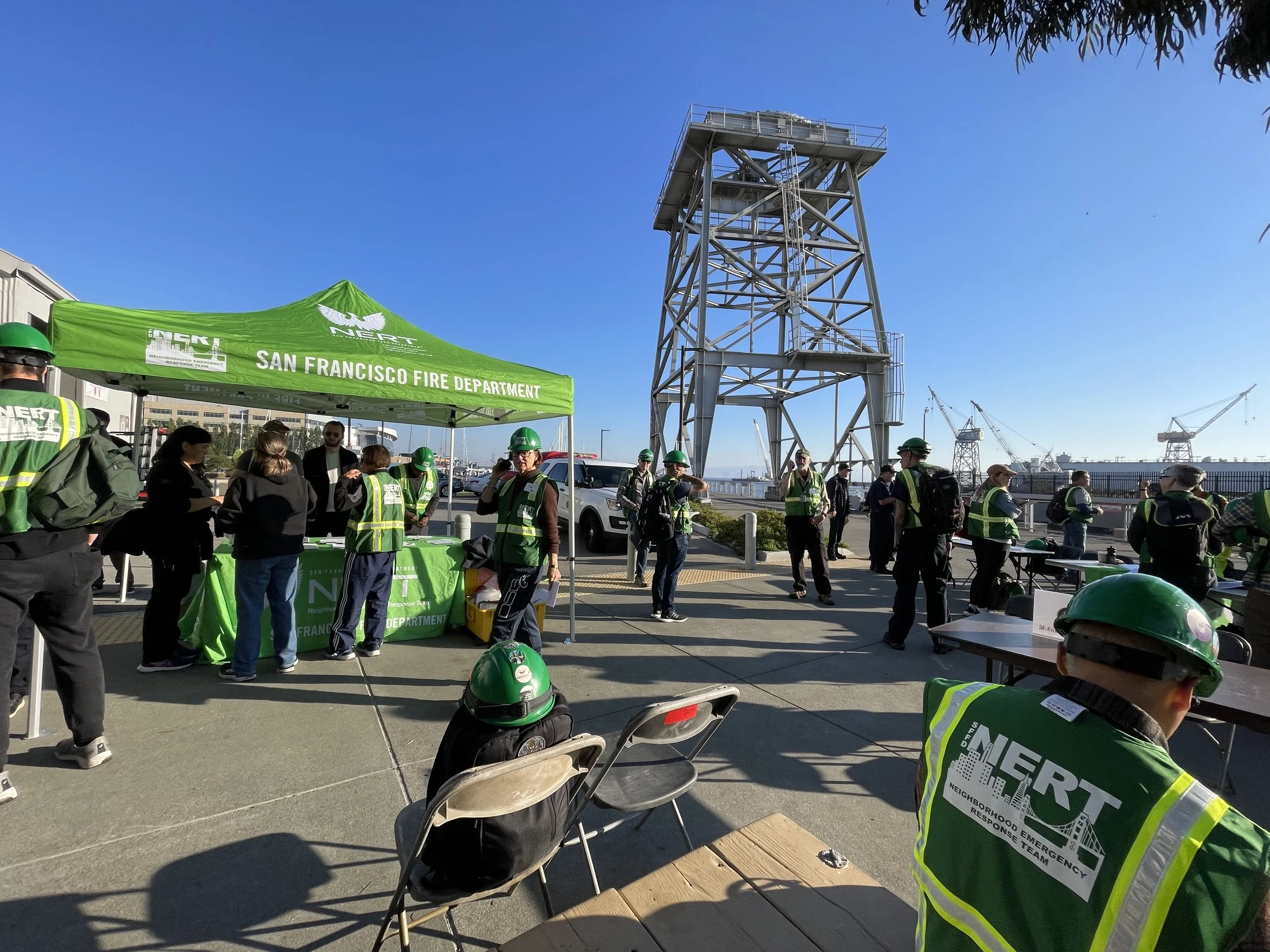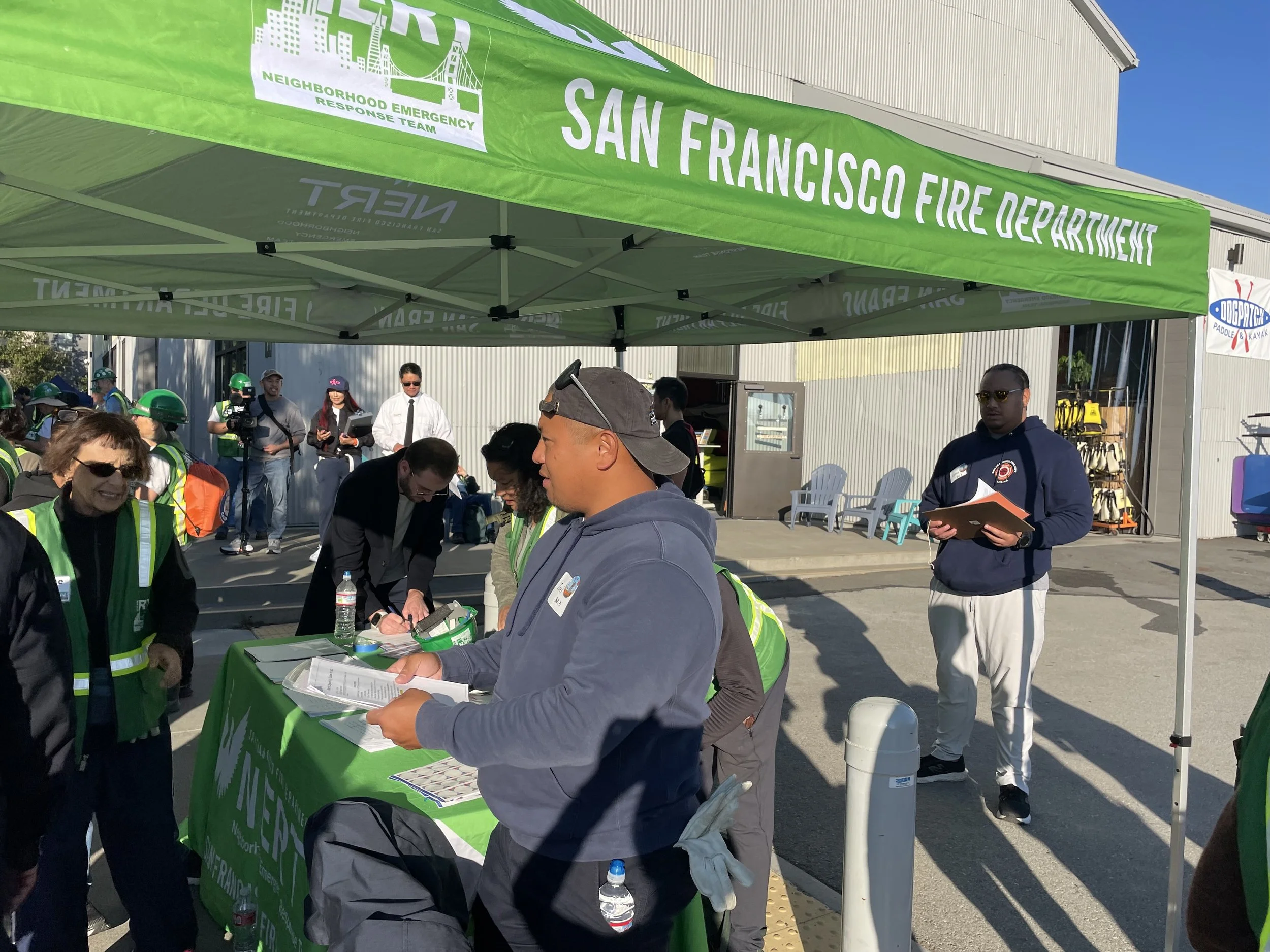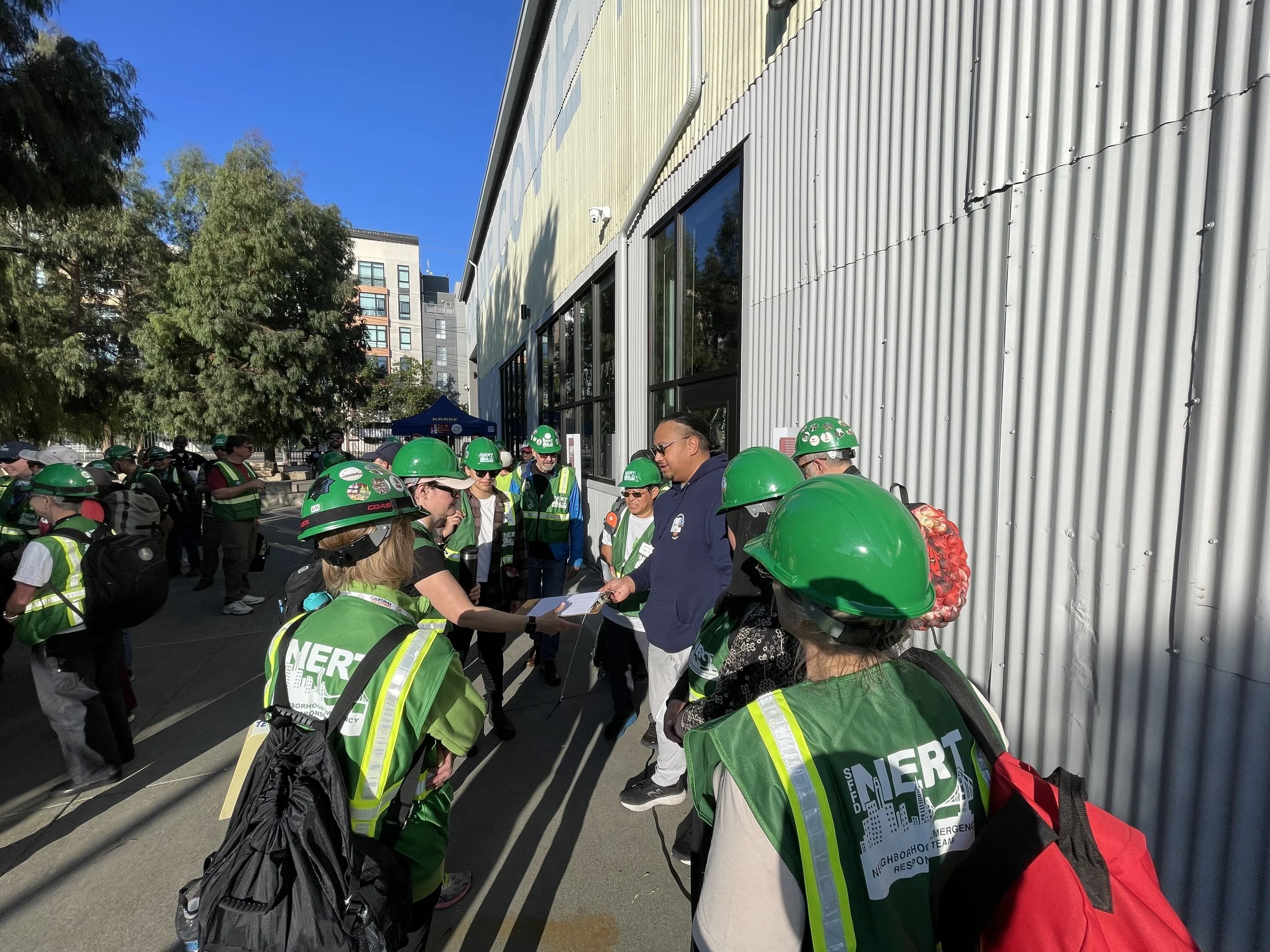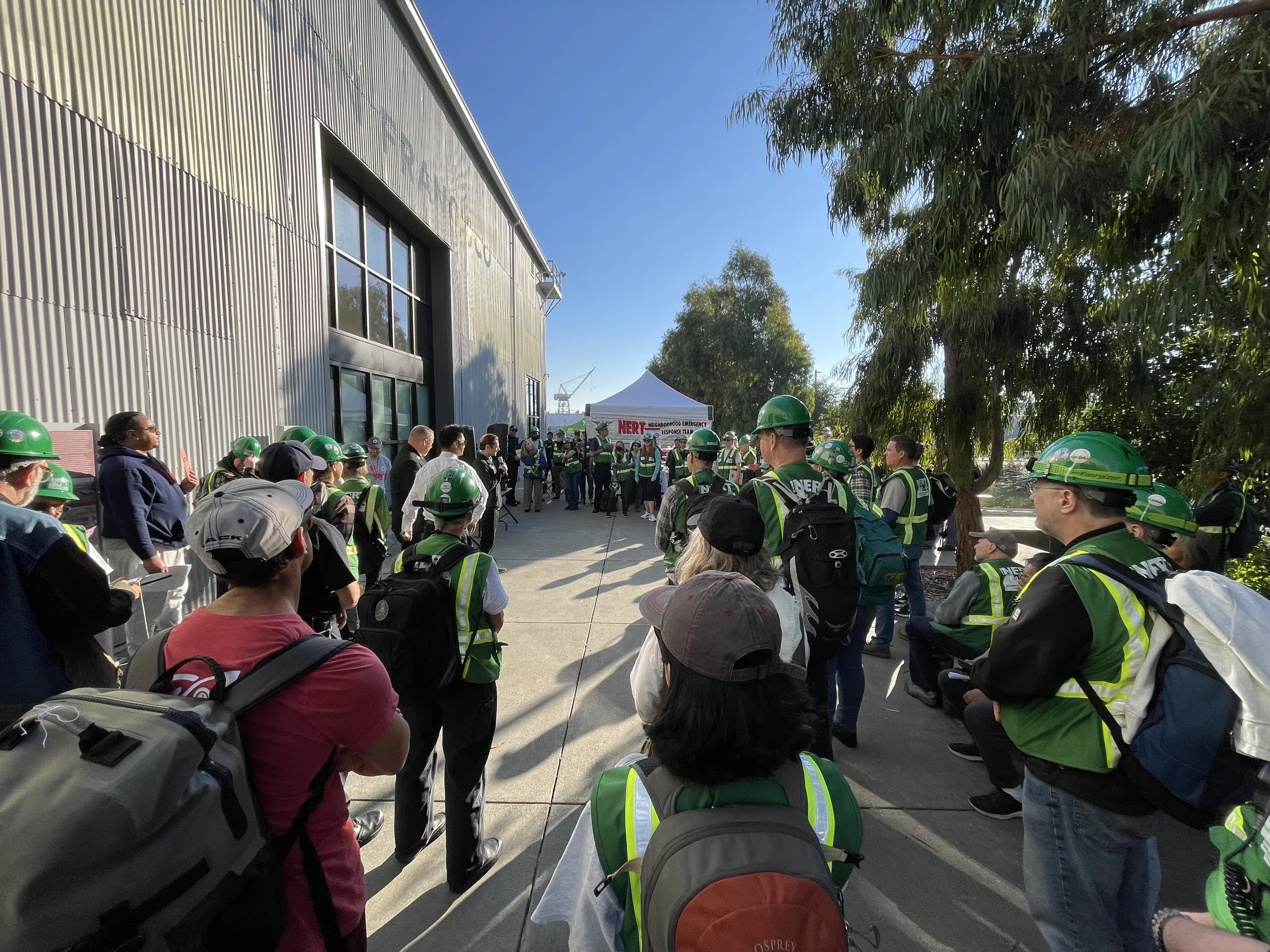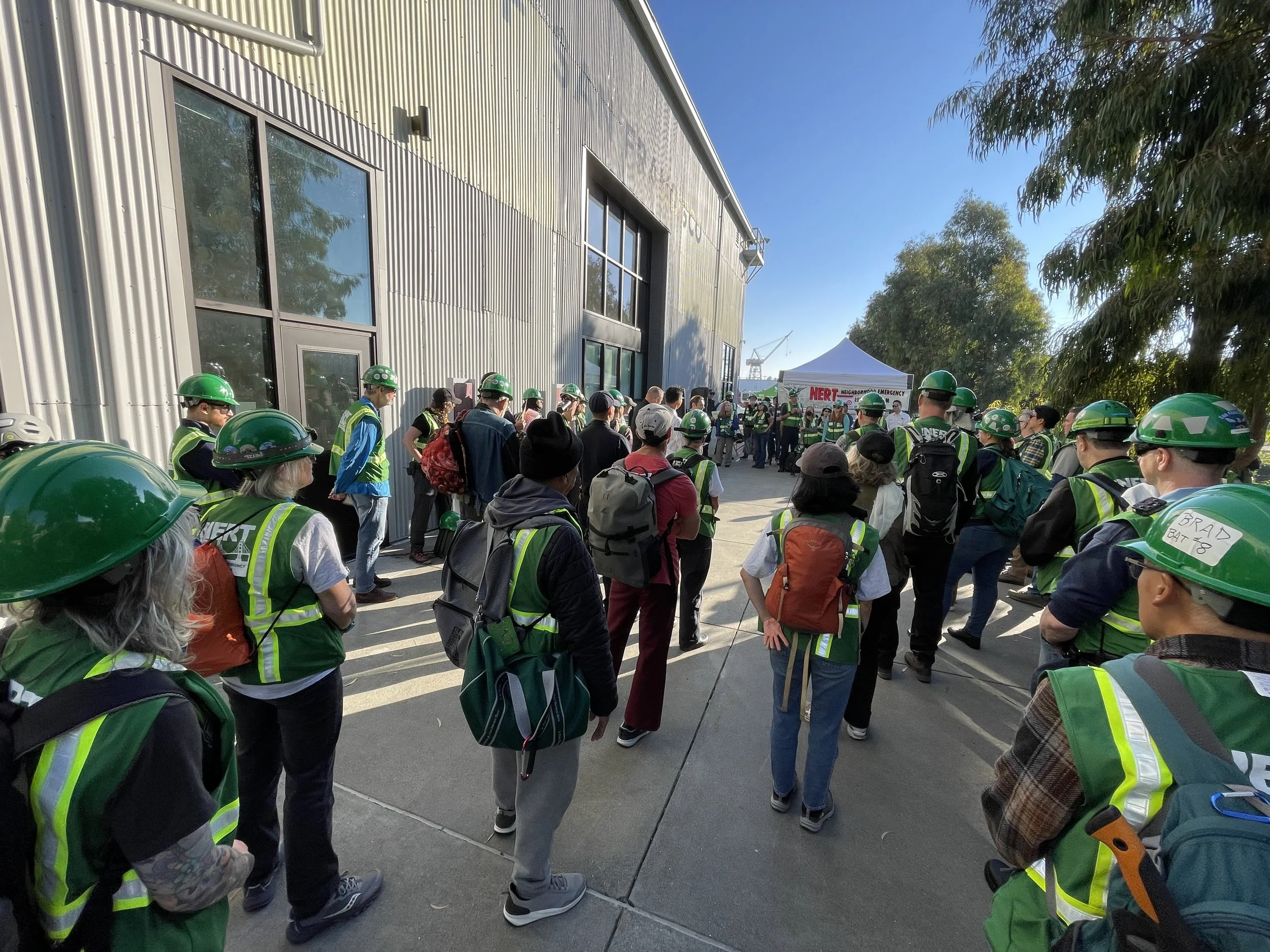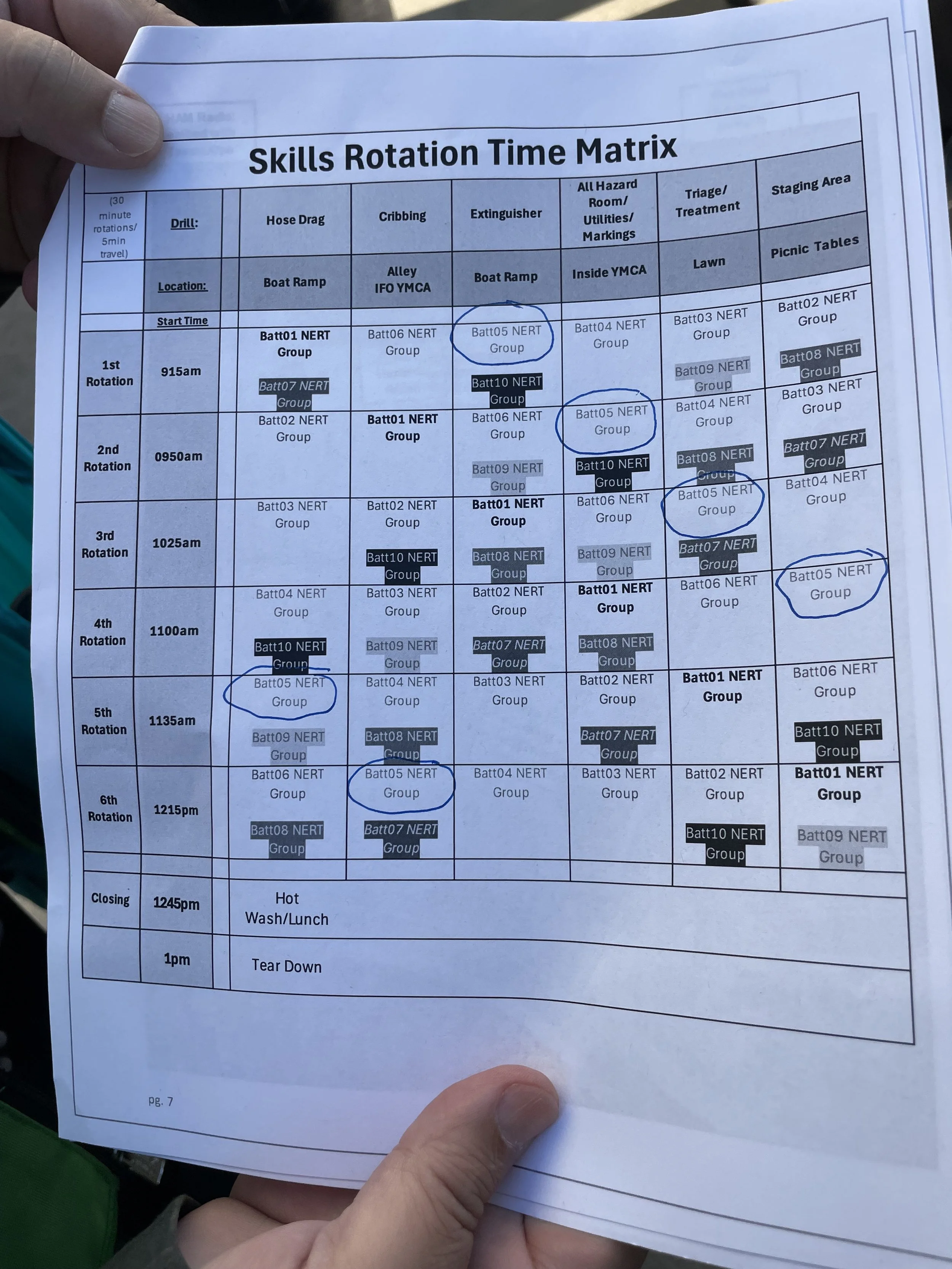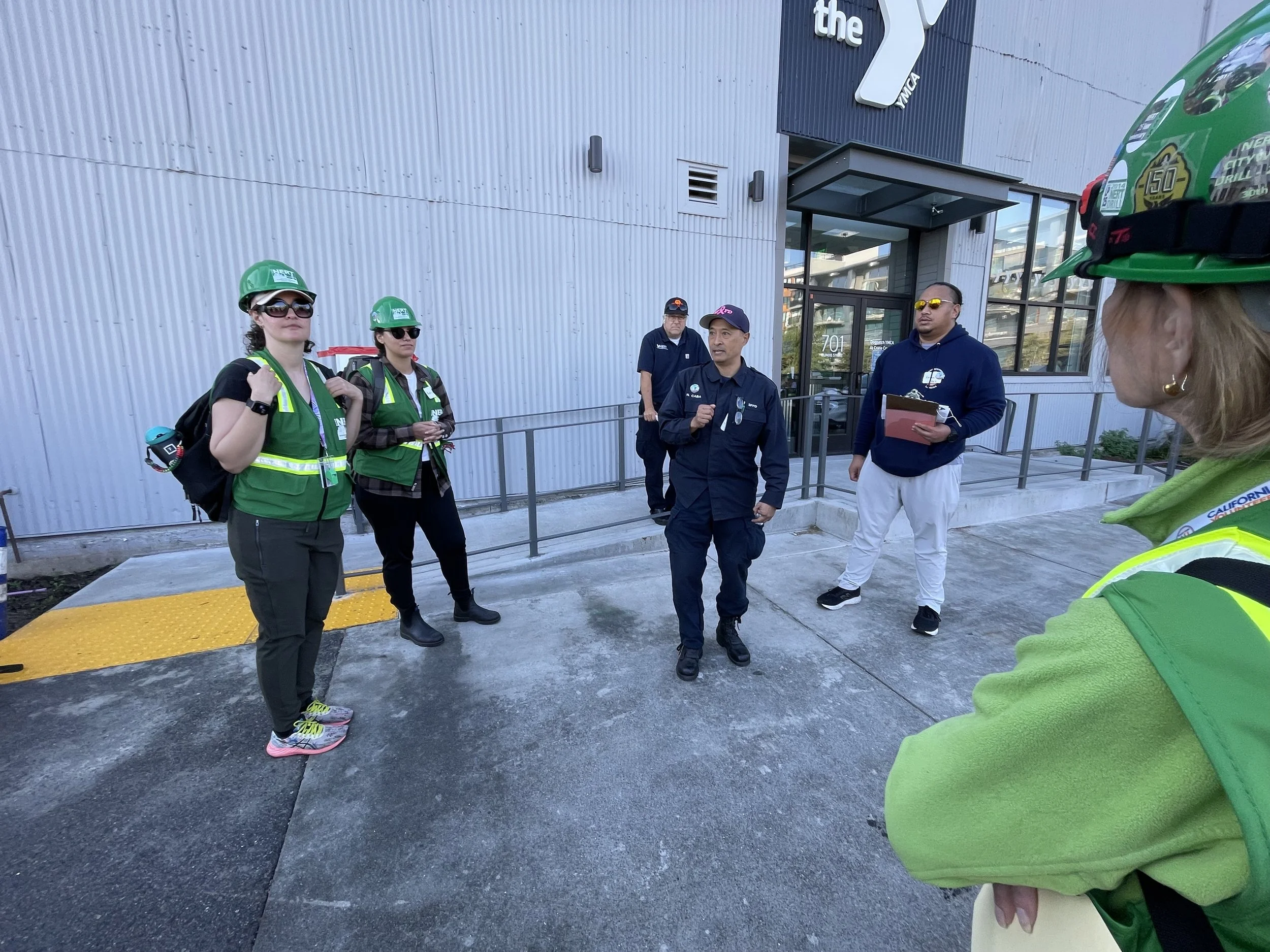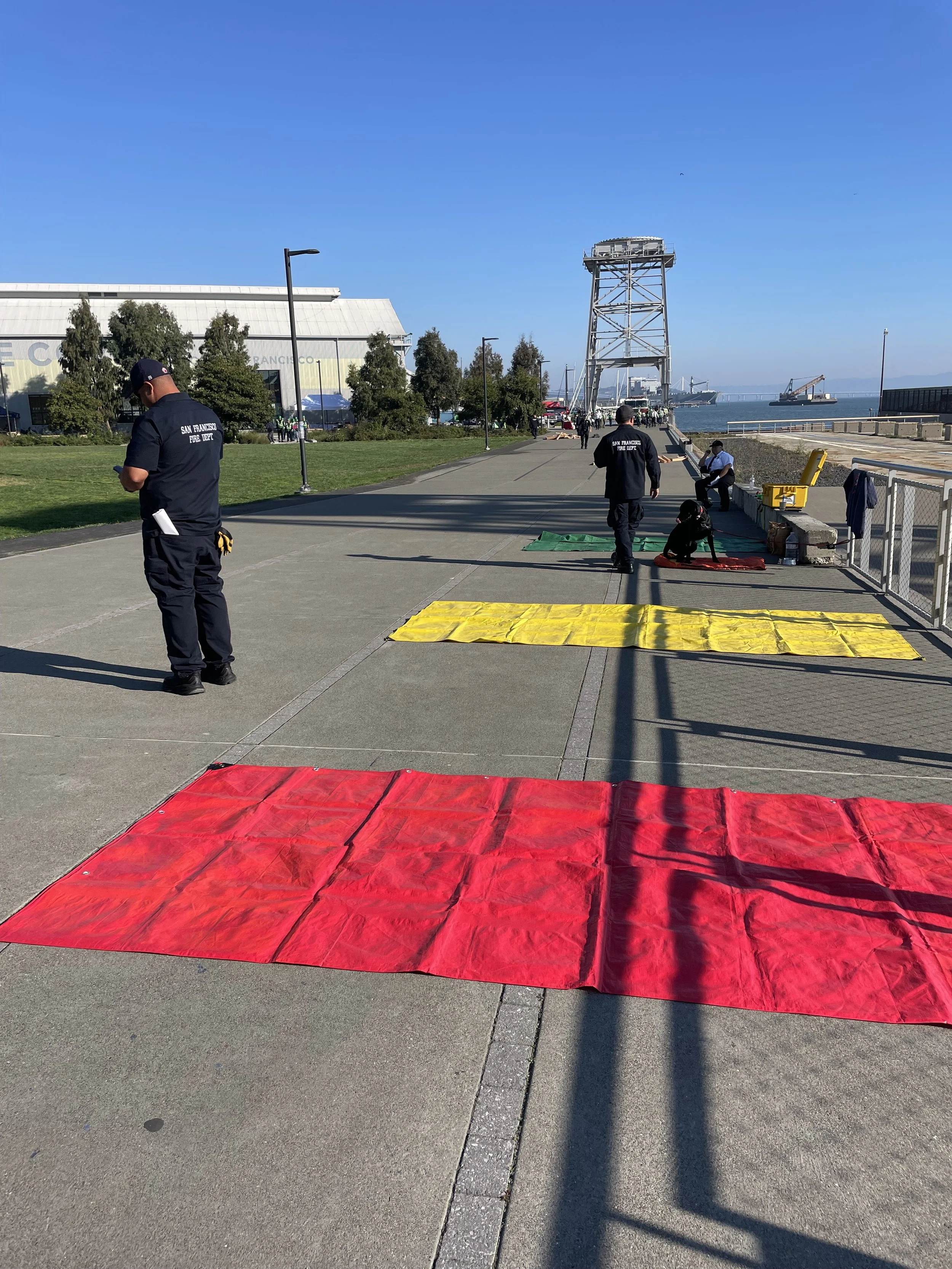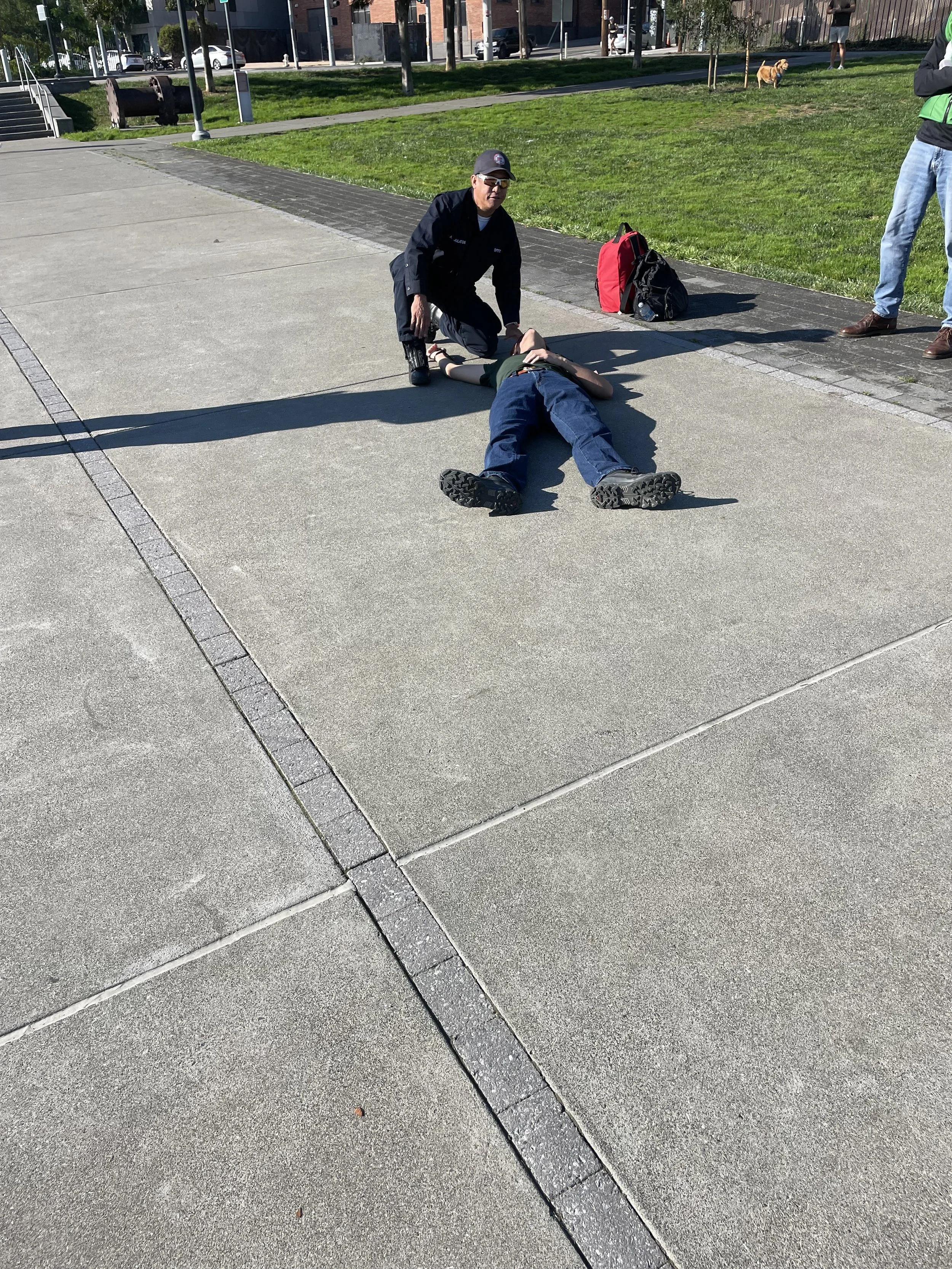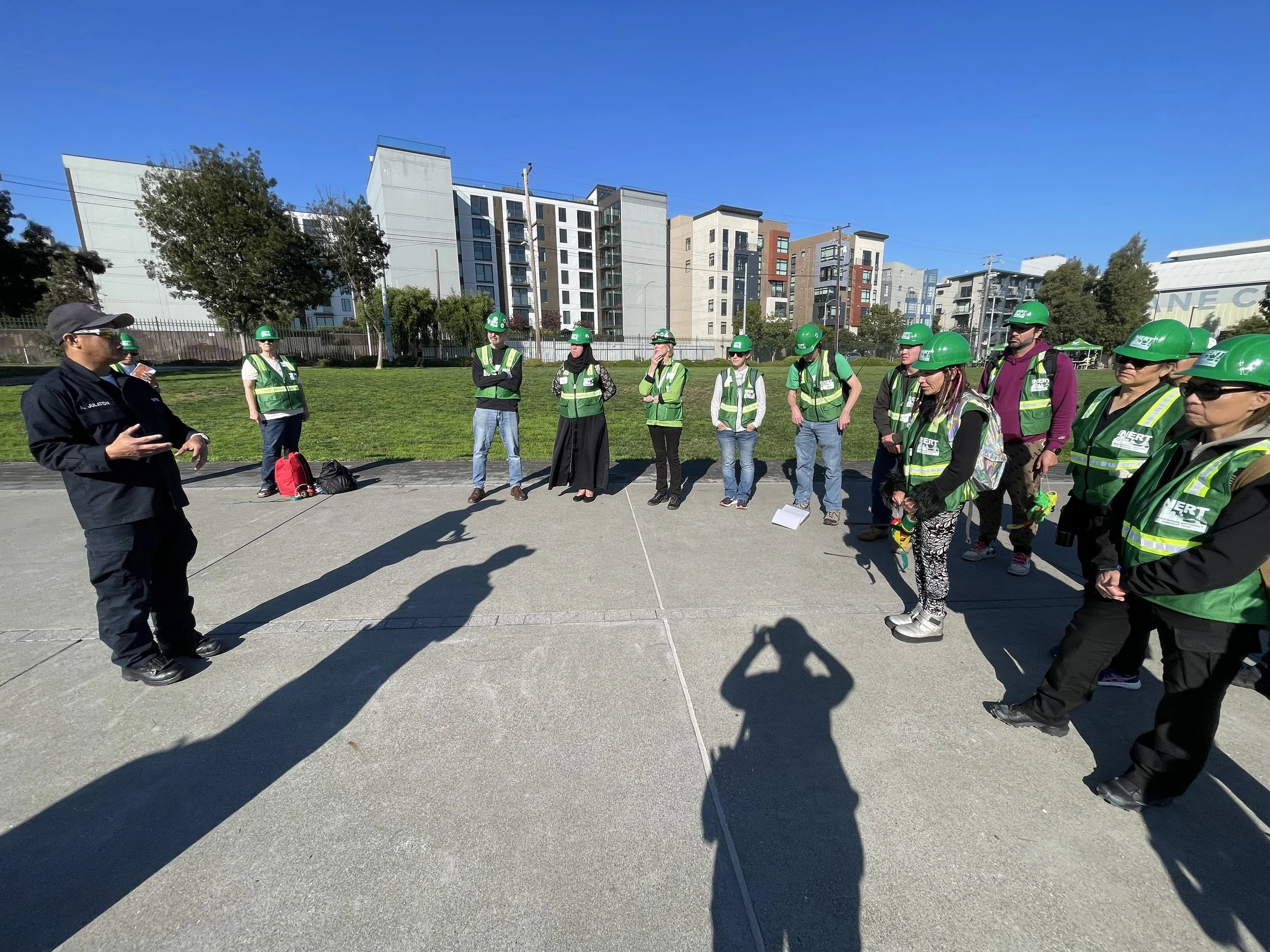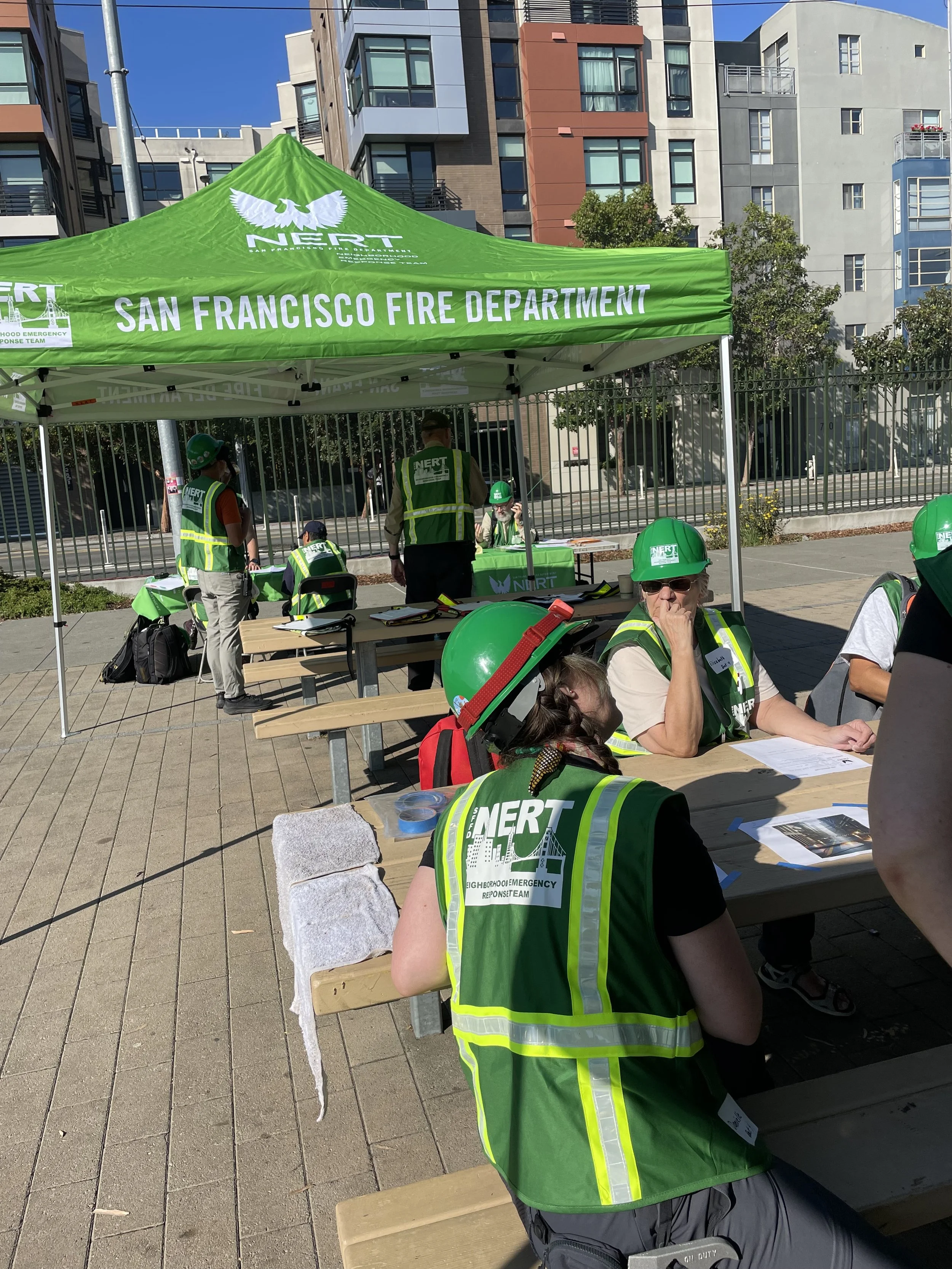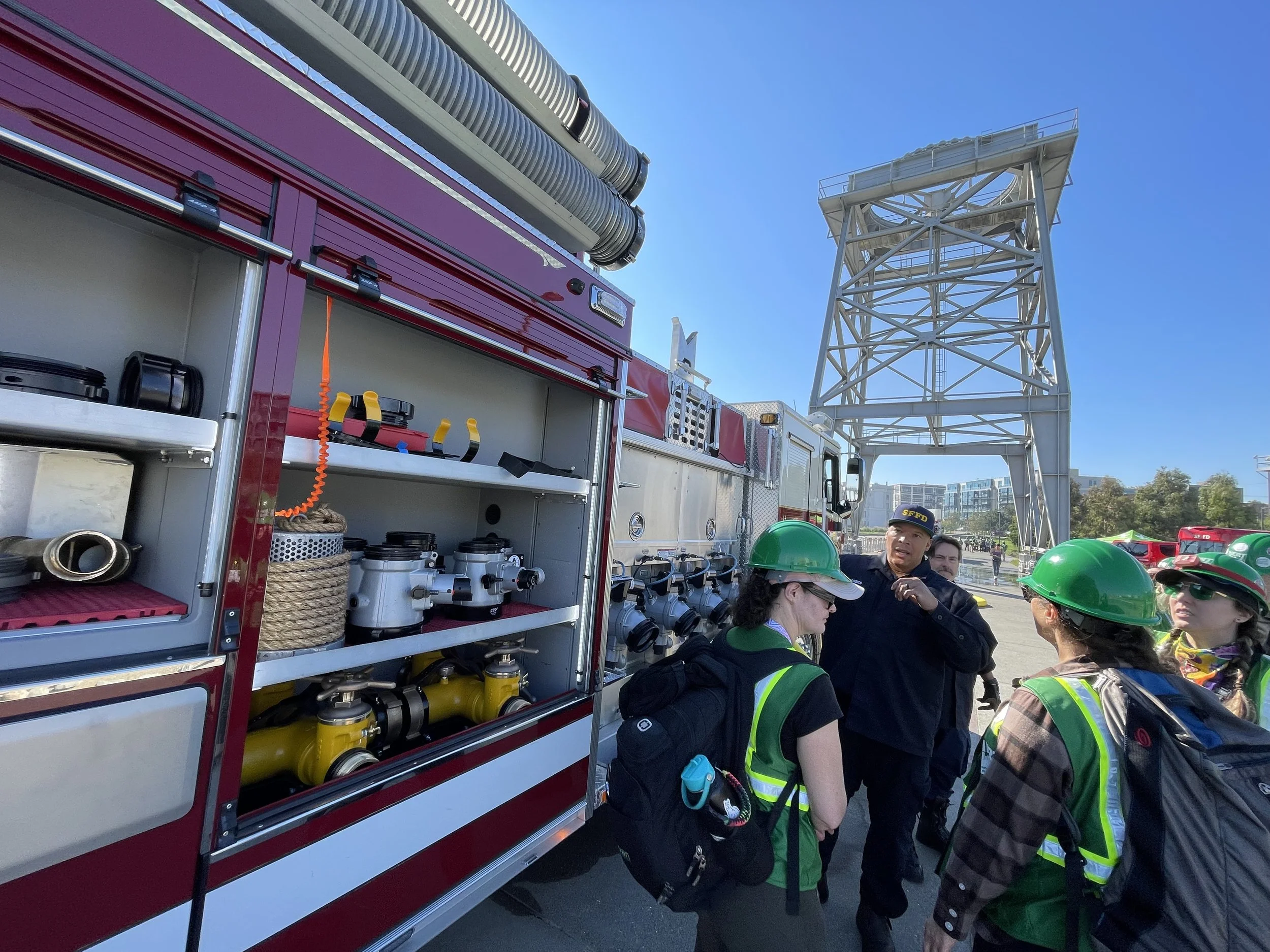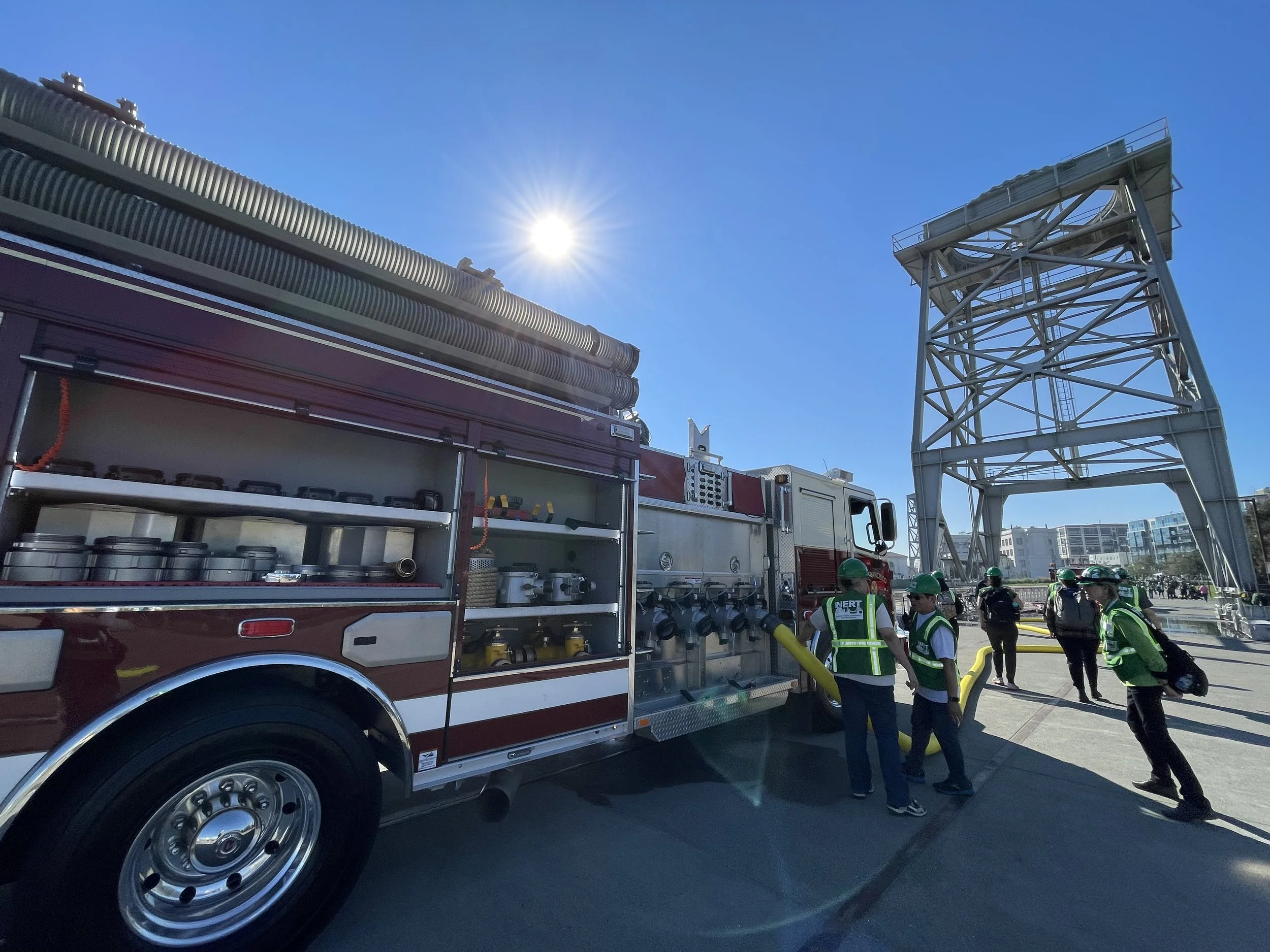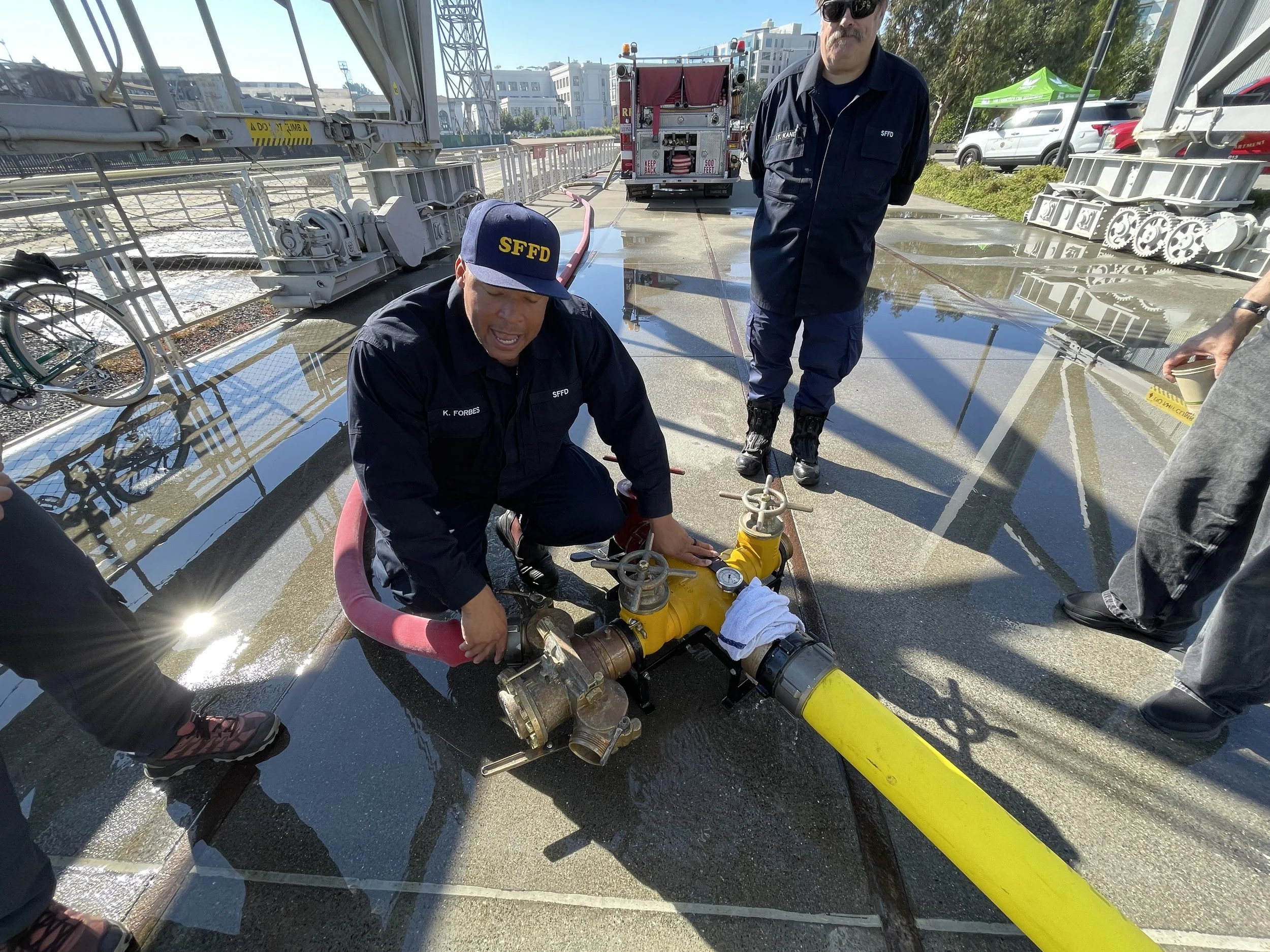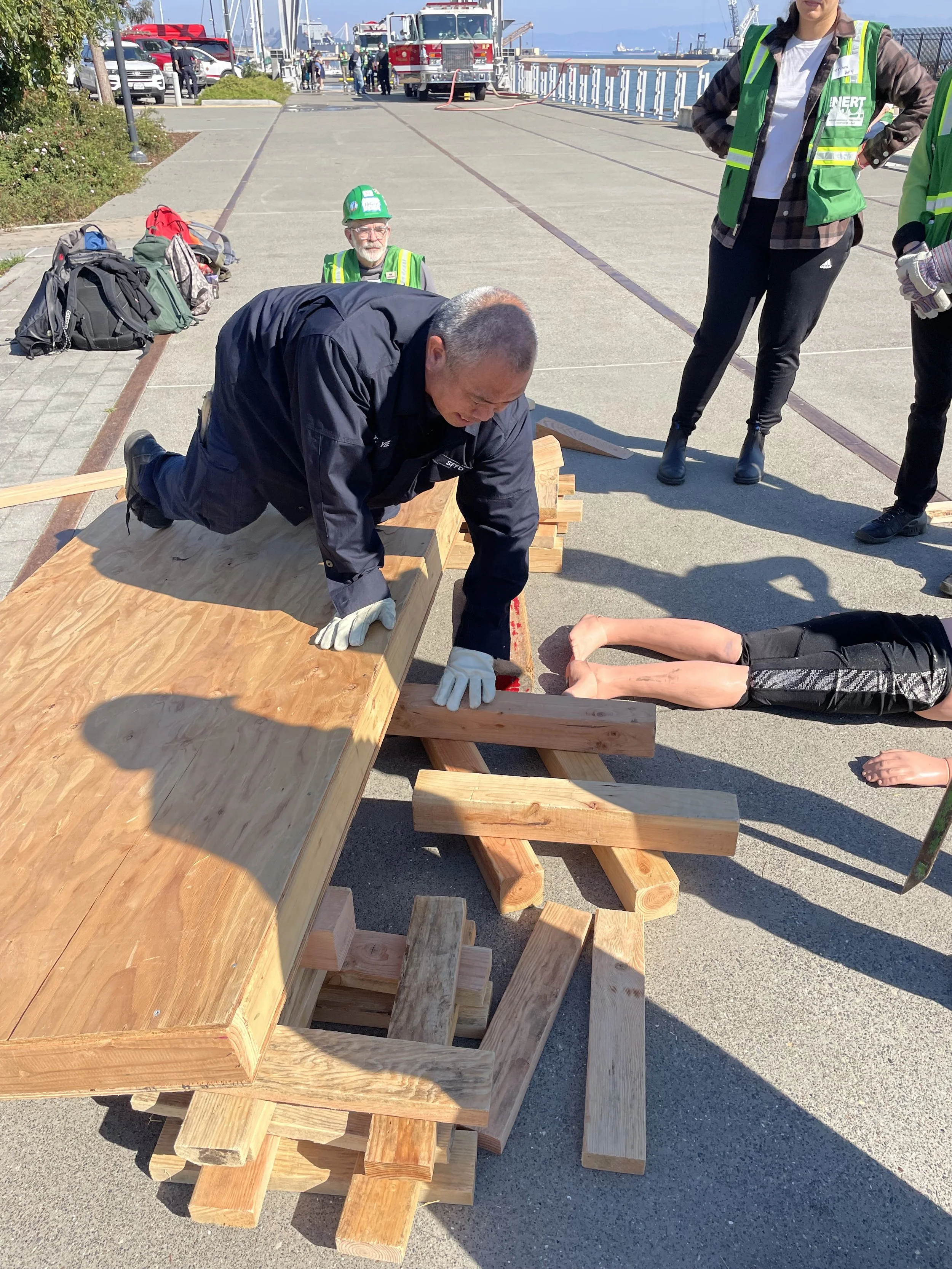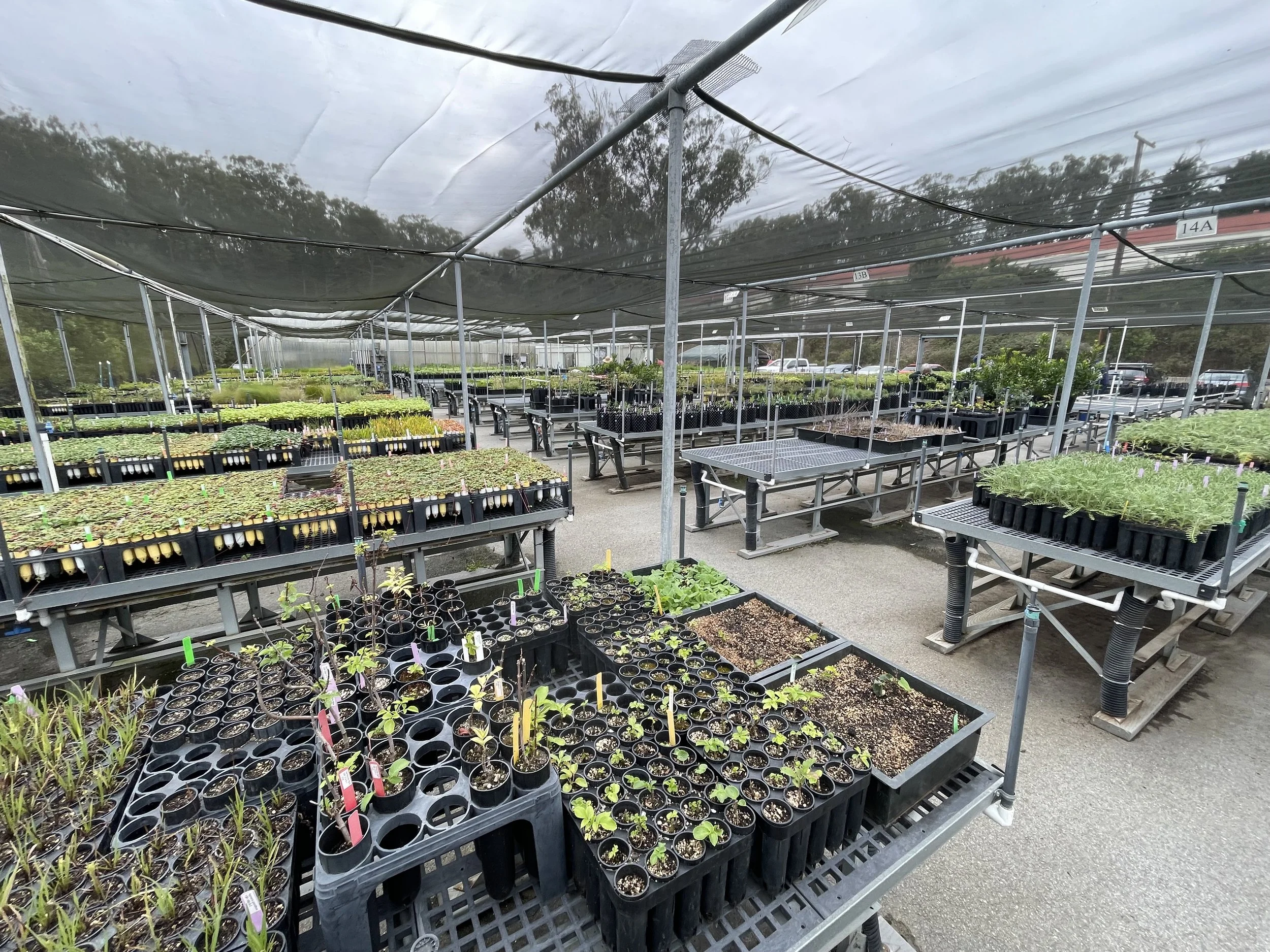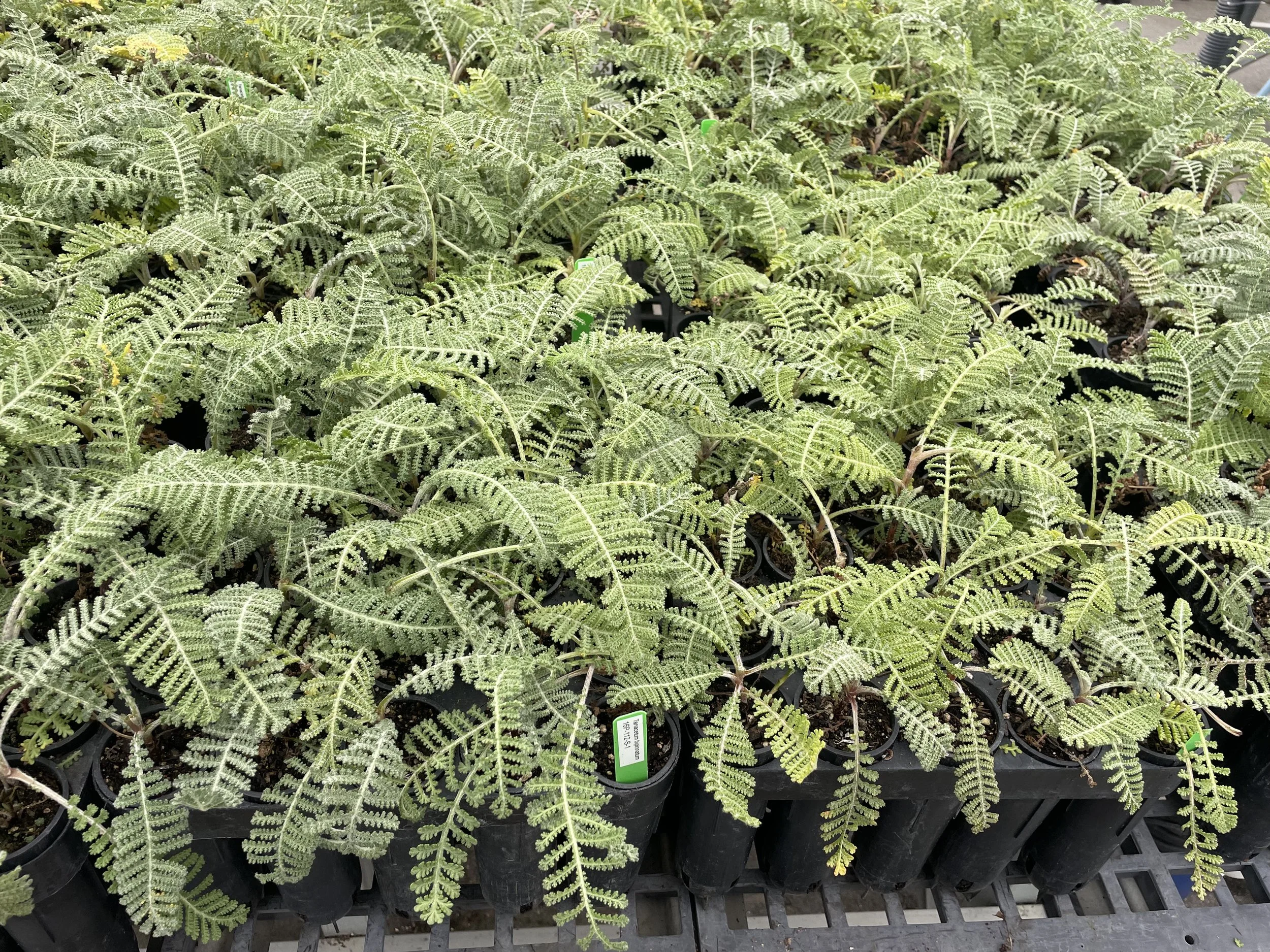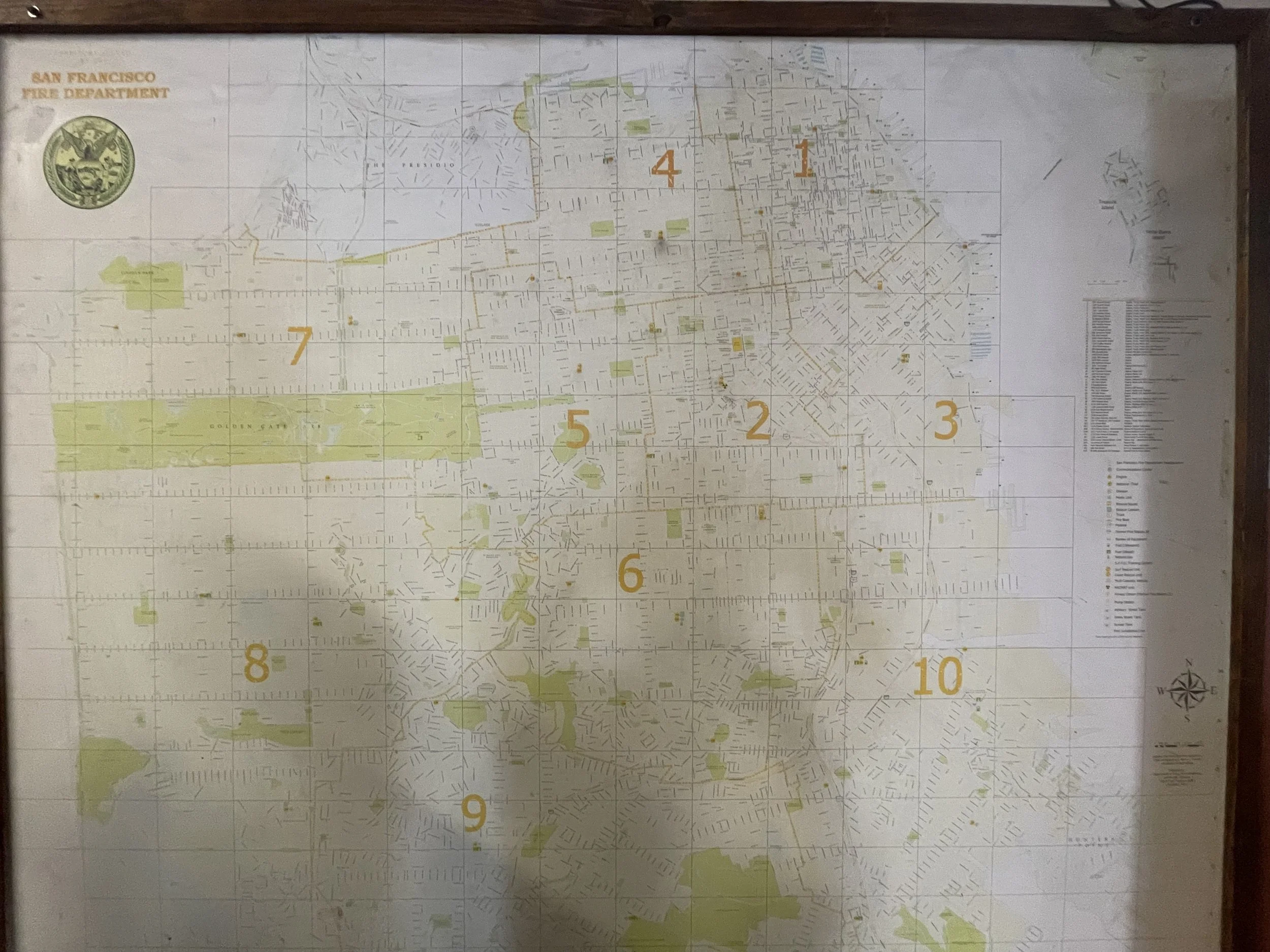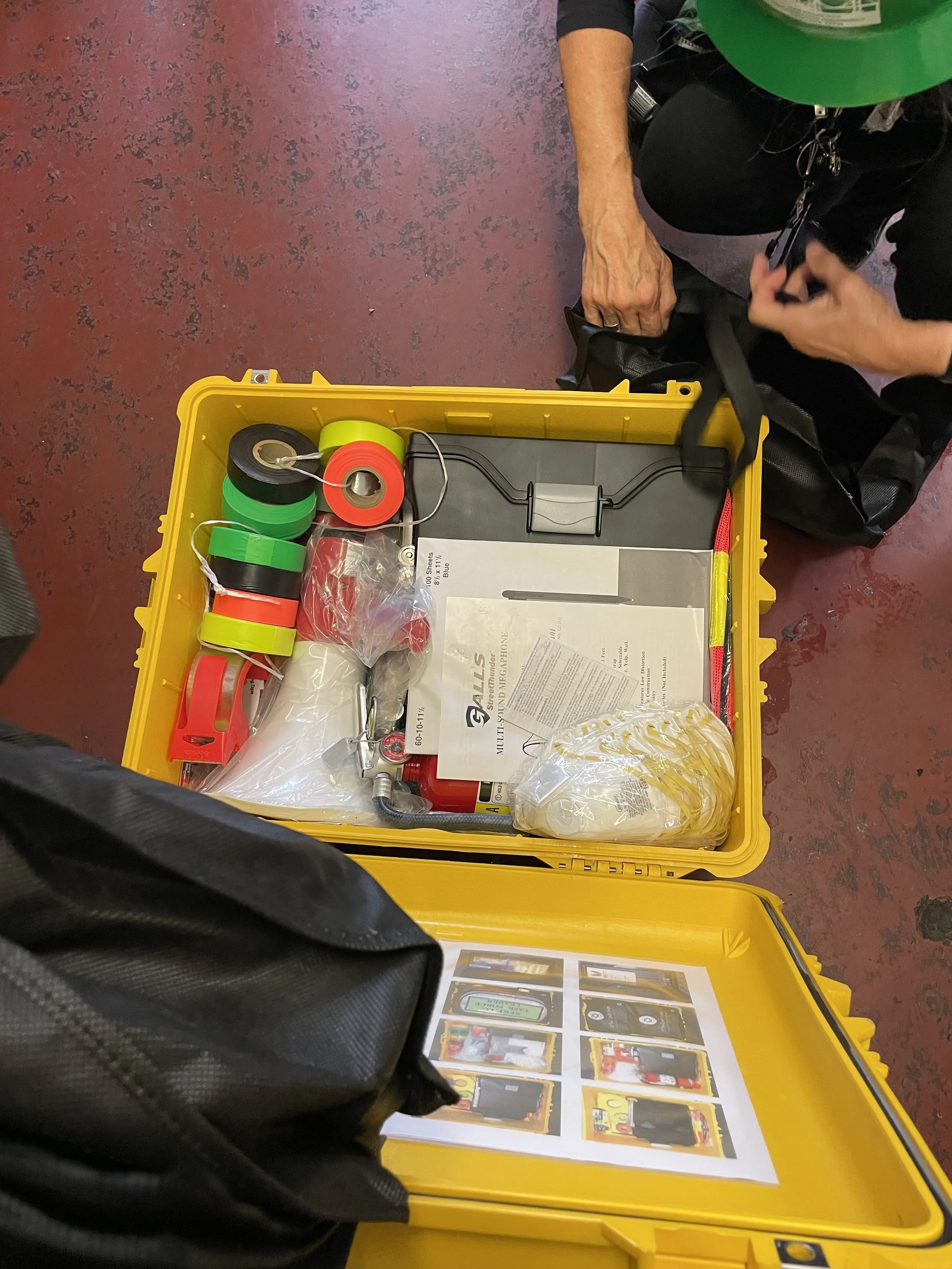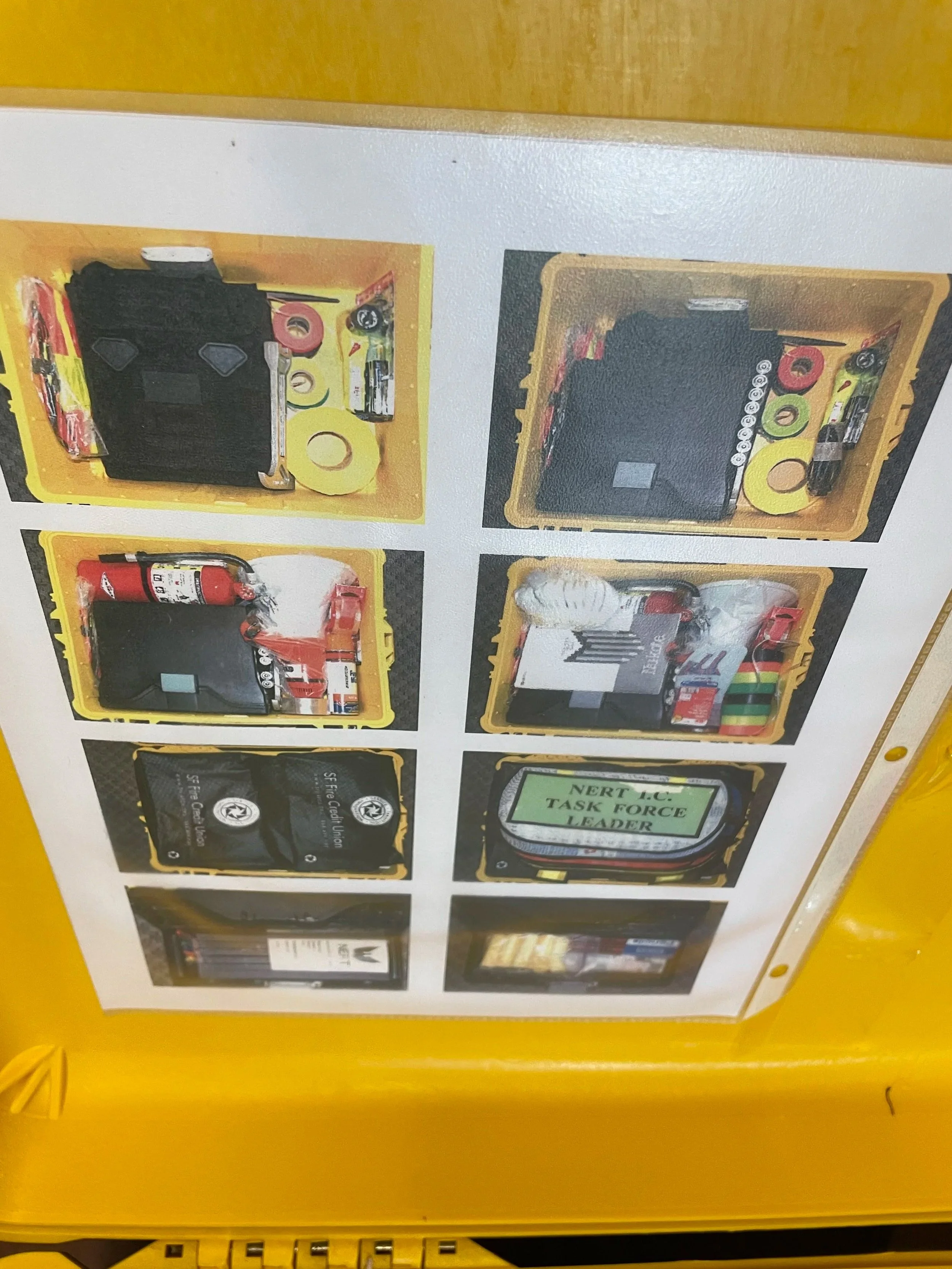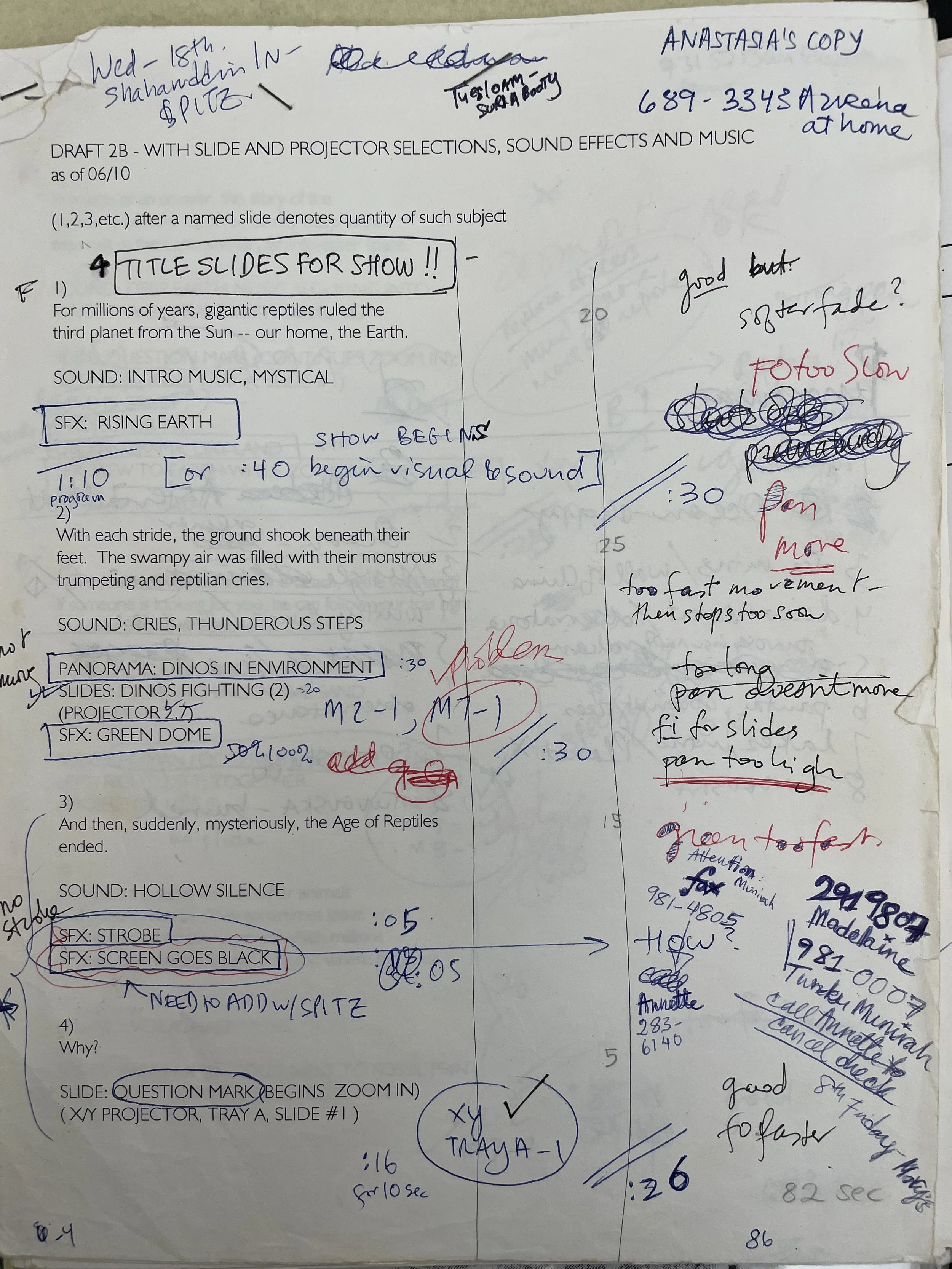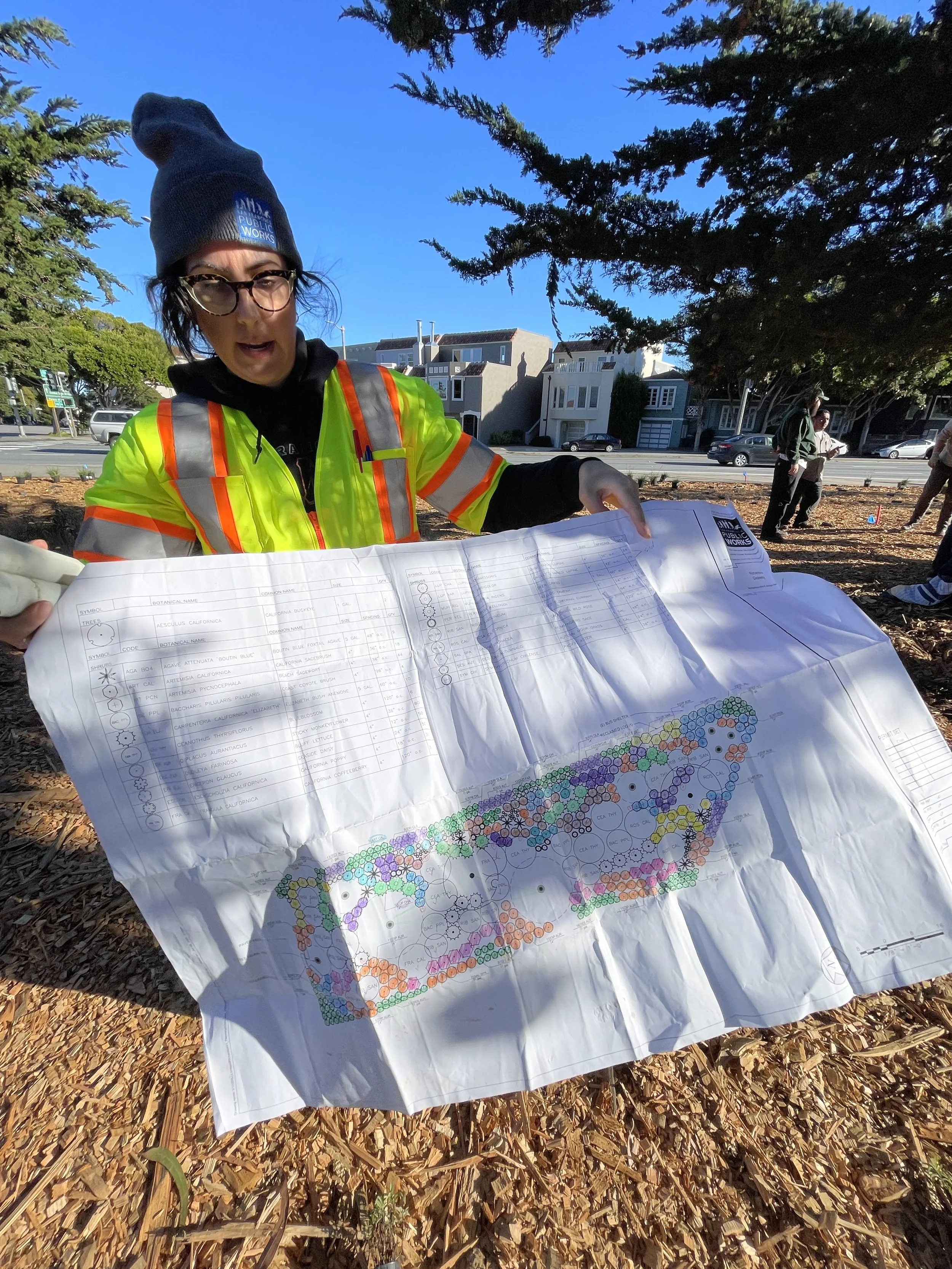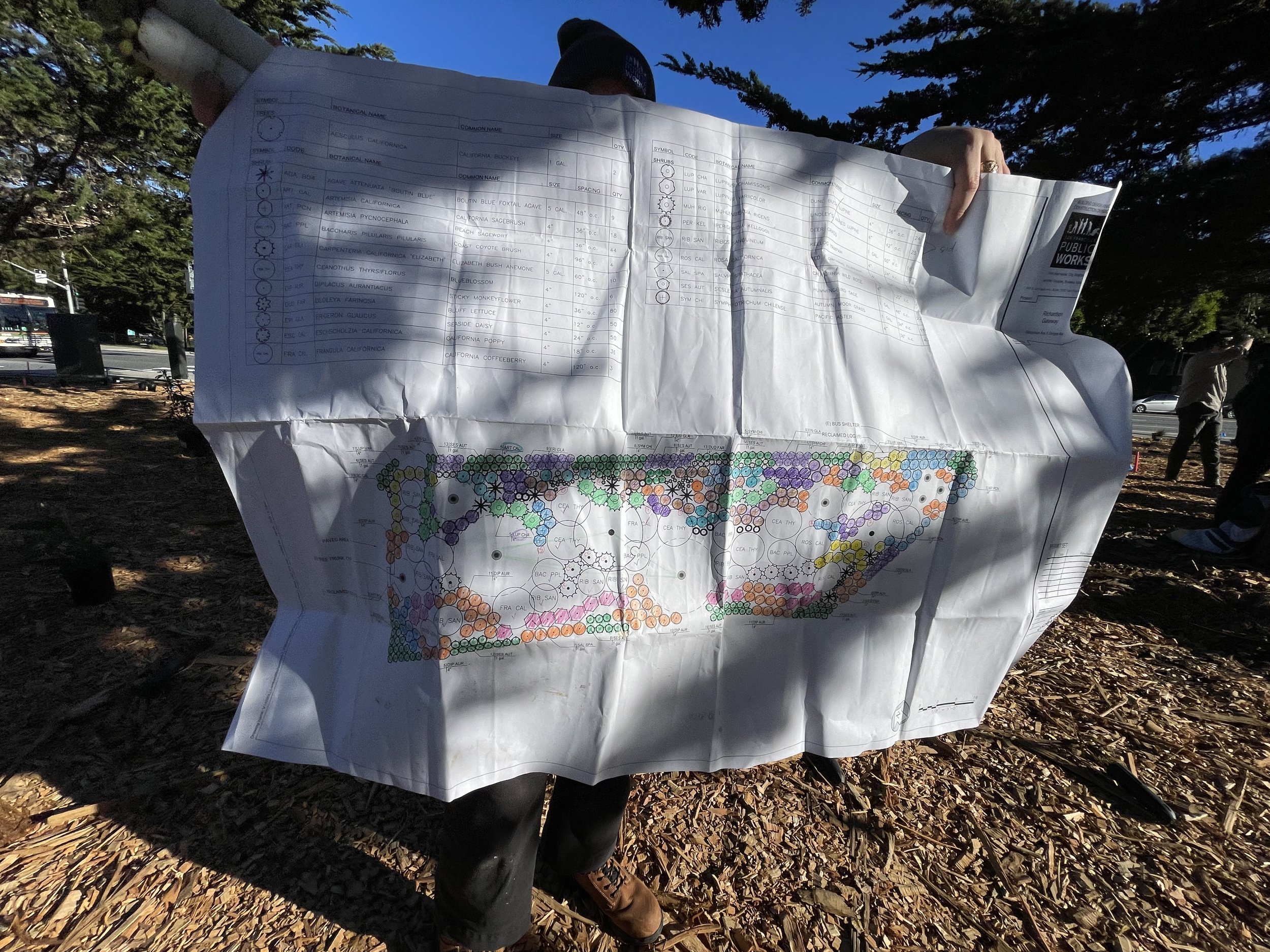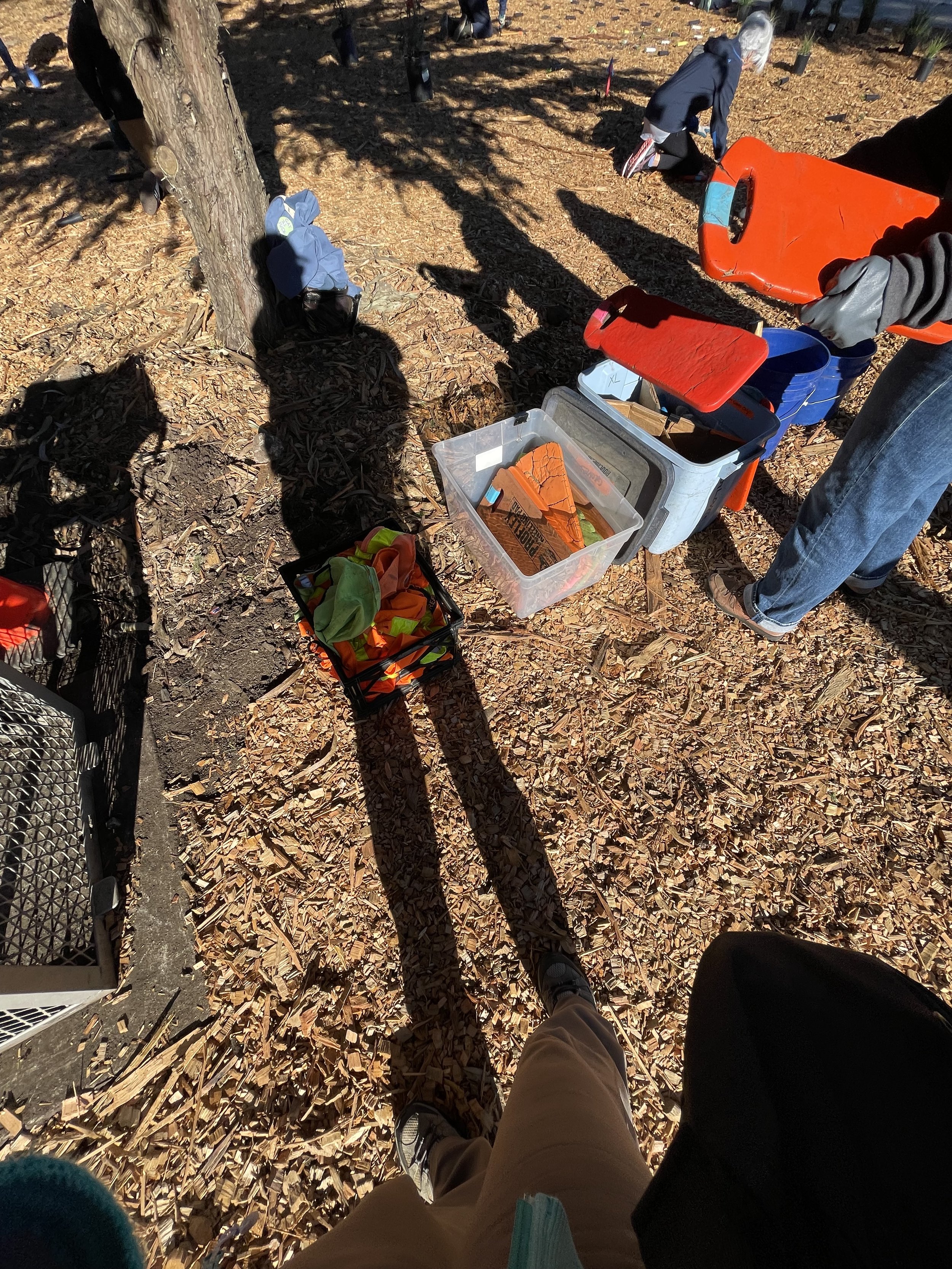Last weekend, I had the pleasure of organizing and hosting a SFFD NERT Map Your Neighborhood (MYN) disaster preparedness class with SF City Supervisor Stephen Sherrill at the Palace of Fine Arts — and what an energizing afternoon it turned out to be!
Neighbors Come Together to Get Ready
Our Eventbrite registration page garnered more than 400 visits, so I hope that means a lot of people are quietly interested in being better prepared. About 10% completed the registration.
We had about 25 people total in attendance, including a teenage boy who brought his parents (I love seeing families learning together), neighbors from Broderick and Filbert Street including a block with a longtime neighborhood watch group. We were joined by several Marina District Avila Street group leaders who are now organizing for emergency response — they’re already famous for their Halloween block parties! Folks came not just from Cow Hollow and the Marina, but also from Pacific Heights, the Richmond, and even the Mission and the Sunset District — a great mix of neighborhoods coming together to learn how to take care of each other when disaster strikes.
Fire Department and City Leaders Join the Effort
As the SFFD NERT Program Coordinator from the Fire Department, Fire Captain Brandon Tom came and spoke to everyone about the opportunities to get free training.
The Supervisor’s legislative assistant Jack Hebb captured footage for District 2’s channels. The event was featured in the Supervisor’s newsletter (thank you for including us — it was a very full news month!).
SFFD PIO Sam Menchaca was there filming videos for the Fire Department to share.
SFFD PIO Sam Menchaca captures footage of SFFD NERT Paul Tipp registering walk-ins. Thanks to Paul and fellow NERT Elisabeth Brandon for volunteering to assist during this special event!
A Perfect Setting for Community Connection
The Small Theatre space at the Palace worked beautifully — cozy, focused, and perfect for discussion. Huge thanks to Rich Goss for helping us secure it for this event! We had a handful of walk-ins, and curious pedestrians stopped by to ask what NERT is, including a tourist from Boston, Massachusetts who will now look to see about CERT classes in his area.
Instructor Sue Brown addressing the class in the small theatre of the Palace of Fine Arts
Learning the Nine-Step MYN Plan
Our instructor, SFFD NERT Sue Brown, did a fantastic job leading the 90-minute session, walking everyone through the nine-step MYN plan — a simple but powerful way for neighbors to coordinate after a disaster when first responders can’t reach us right away. The class focused on communication, checking on neighbors, and mapping local resources so we can all help one another in that “golden hour” after an emergency.
One of the most exciting takeaways? Supervisor Stephen Sherrill’s involvement seems to have inspired other districts to invite their supervisors to participate in a class. Sue tells me Districts 7 and 11 are now planning their own MYN events — how great is that? Preparedness truly spreads!
Keeping the Spirit of NERT Alive
No one from my street or block showed up (despite my relentless leafleting directly to their residences 😅), but I’m hopeful that awareness will begin to build. After all, District 2 is where NERT began — right after the Loma Prieta earthquake — and it’s up to us to keep that legacy alive. We still have 92-year-old NERTs here in the neighborhood waiting for the next generation to step up. I am thinking about them when I contact the rest of you!
The Next Generation Is Every Neighbor
We already have the free classes from generous volunteer instructor Sue Brown — we just need people to take them.
Stay Involved and Stay Prepared
Find a readiness event that works for you, and come!
If you couldn’t make it this time, keep an eye out for future SFFD NERT and Map Your Neighborhood trainings listed on the Fire Dept. site here: NERT TRAINING CALENDAR.
The more we know, the stronger and safer our community becomes.
Because in the golden hour after a disaster, we all become first responders.



